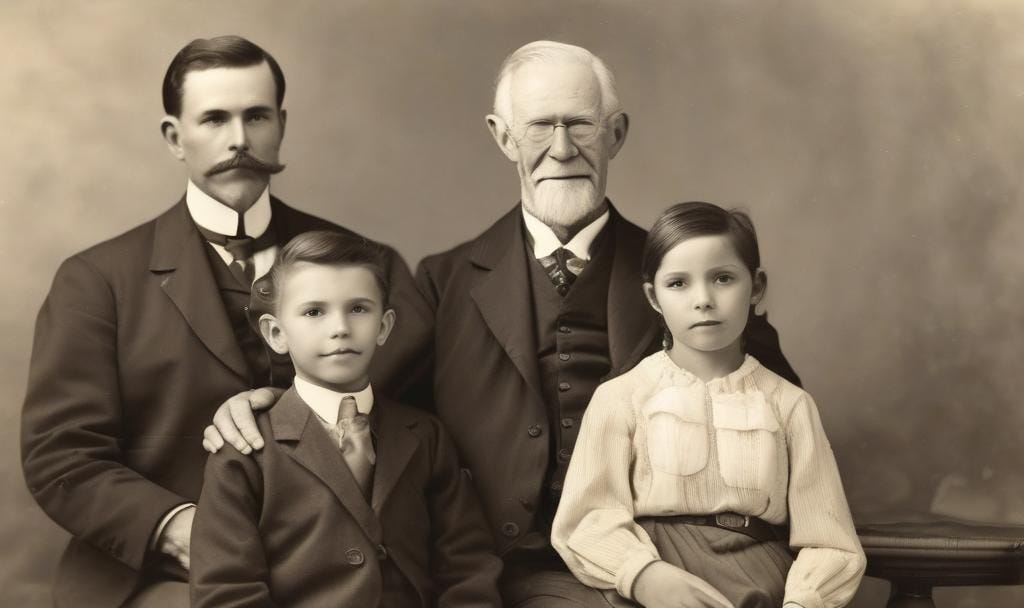No Grandchildren. Now What?
Low birth rates have some older Americans crying the no-grandbaby blues.
The New York Times recently published a somber article titled “The Unspoken Grief of Never Becoming a Grandparent.” The piece follows several people whose grown children have sworn off having any of their own. Most of these parents believed their children “should be able to make their own choices about parenthood” and gave them “their full support” in deciding not to have them. Still, each person interviewed admitted to having “pangs of sadness” watching their children “make their own decisions, different from your own.”
Not everyone gets to be a grandparent, but this article suggests a staggering amount of people with grown children will never reach that milestone. Statistics tend to support the argument. The current annual birth rate in the United States is 12.009 births per 1,000 people. That’s a 0.12% decline from 2023. In fact, the birth rate in this country has declined every year since 1988, when the rate was 15.654 births per 1,000 people. Compare those with the numbers in 1950, when the rate was 24.268 births per 1,000 people.
It’s not just the United States that’s seeing a sharp decrease in the number of adults having children. In fact, the numbers are even lower in the United Kingdom, Ireland, France, Canada, Italy, South Korea and dozens of other countries. Several African nations appear to be the only ones bucking the trend.
Why are so many people choosing not to have kids? You can find articles that claim to know the reasons. Many say it’s because of the cost of raising a child and the uncertainty of the future. Others suggest that young adults enjoy being childless and don’t feel the urge to procreate as people did in the past. In the Times article, both reasons are prevalent. In one household, an older sister said she simply didn’t want to have children, while her younger sister said “financial stability, school safety and health care access” were among the reasons she was leaning toward not doing it.
Then there is the warning by the U.S. Surgeon General, which The Critical Reader wrote about a couple of months ago. “Over the past decade, parents have been consistently more likely to report experiencing high levels of stress compared to other adults,” Dr. Vivek H. Murthy wrote in his 2024 warning titled “Parents Under Pressure.”
“Throughout their lifespan, parents and caregivers often face heightened stressors, including financial strain and economic instability, time demands, concerns over children's health and safety, parental isolation and loneliness, difficulty managing technology and social media, and cultural pressures. Additionally, the significant mental labor involved with parenting—balancing complex schedules, anticipating a child’s evolving needs, making countless decisions each day on behalf of a child, and monitoring progress—can limit working memory capacity and negatively impact attentional resources, cognitive functioning, and psychological well-being.”
Does this sound like the kind of “job” anyone would willingly take?
While it’s important to recognize the stressors that can arise from parenting, the negative impact of such a warning could easily lead someone already unsure about having children to decide, “No, thank you.”
Whatever the reasons, the startlingly low birth rates here and elsewhere in the world are part of a trend that may get worse before it gets better. Some countries like South Korea are creating incentives to make having children more appealing. It’s not clear if perks like extended maternity leave and increased child tax credits will do the trick.
Like so many things, the low birth rate issue will likely correct itself over time, but maybe not before people like those in the Times article have the chance to spoil any grandchildren.
Ultimately, it’s up to these folks to find fulfillment without relying on their children. The time that won’t be used babysitting grandchildren could be spent traveling with their adult children or with friends. They could also consider tutoring a grade-schooler or mentoring a youth in foster care. It won’t be exactly the same as nurturing one of their own, but it will fill a gap in their lives as they do something meaningful for others.





Wow, what a long dialog this could start. I'm an only child, and only one of my two kids is a parent of one child. It's not clear if they'll have another, since parenting impacts their careers and vice versa. We both grew up with several siblings or cousins who still enrich and/or impact our lives. So we wonder what our grandson's life will be like if he has no siblings and (at this point) only two cousins.